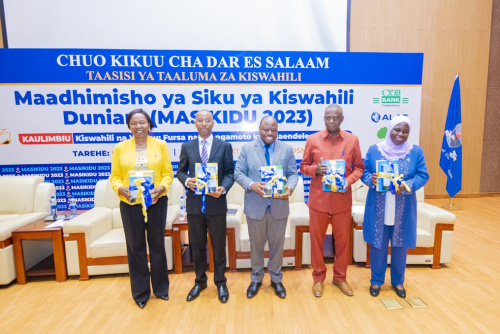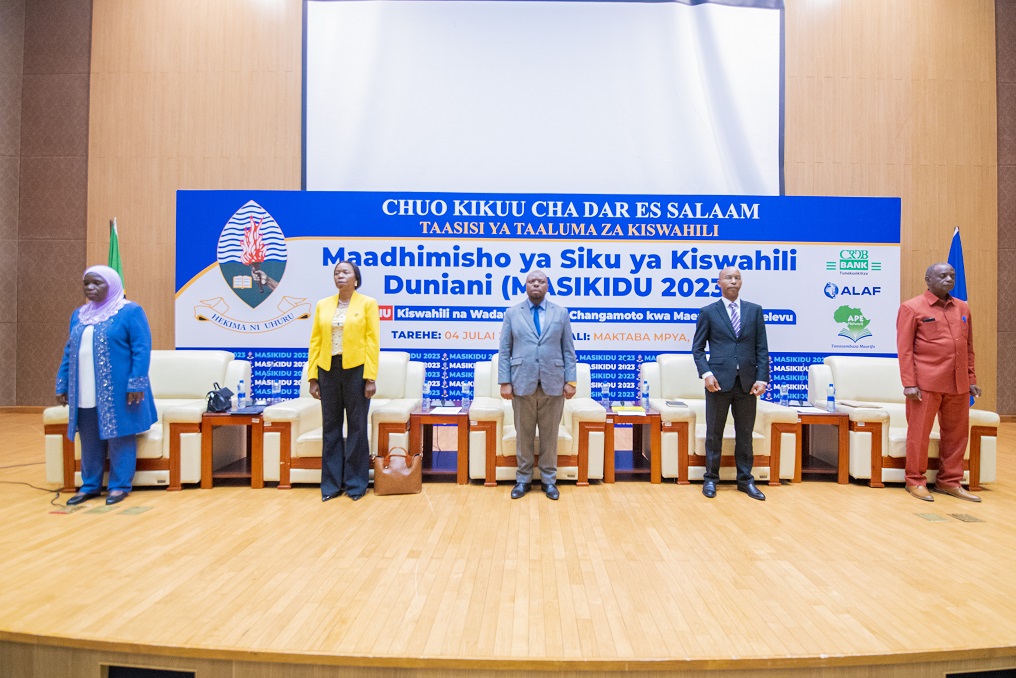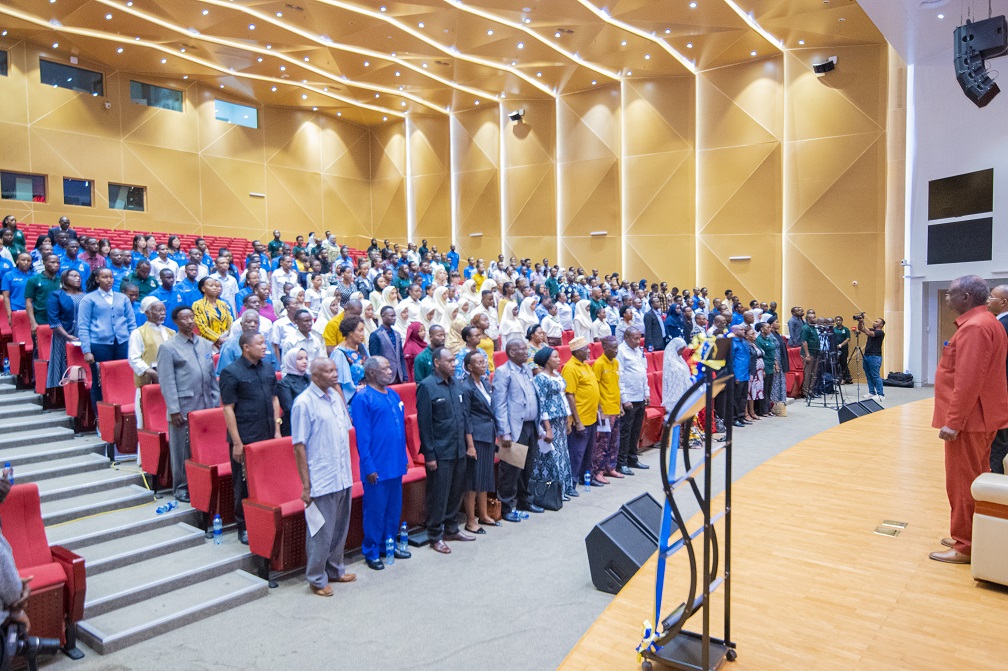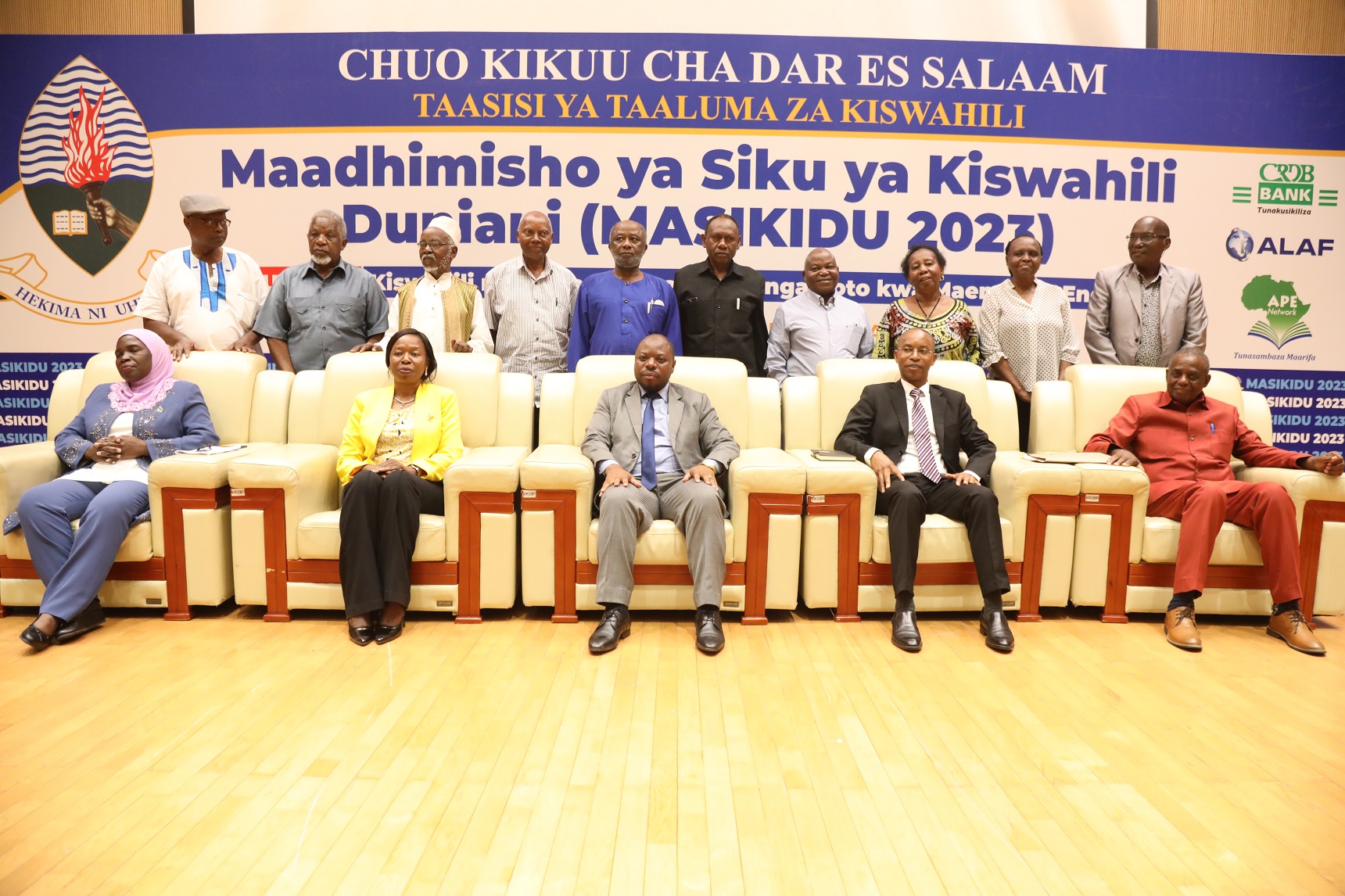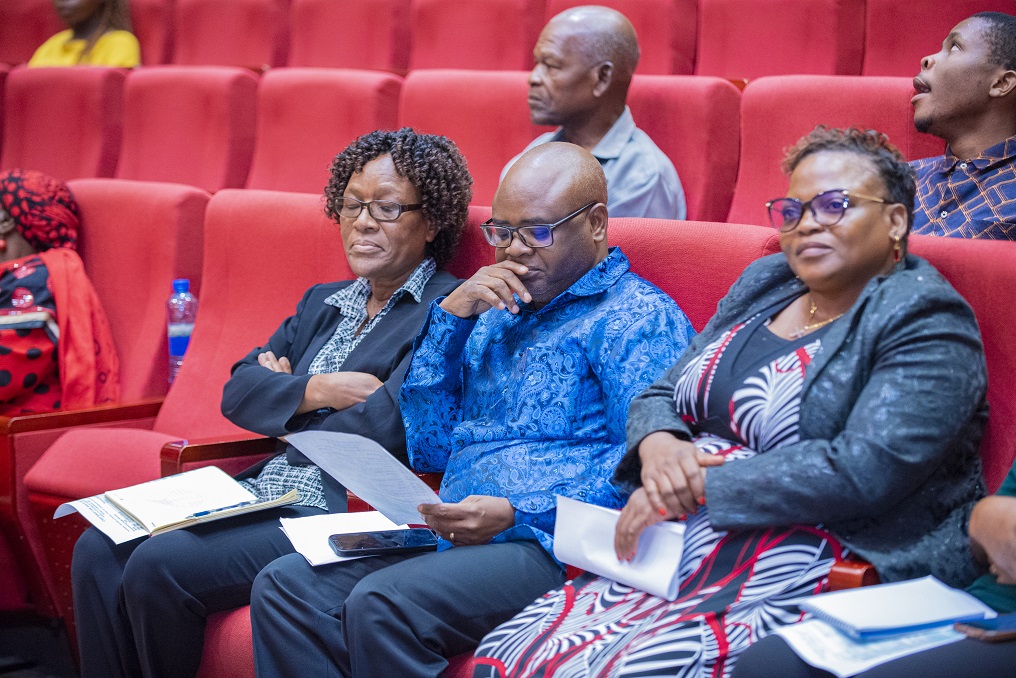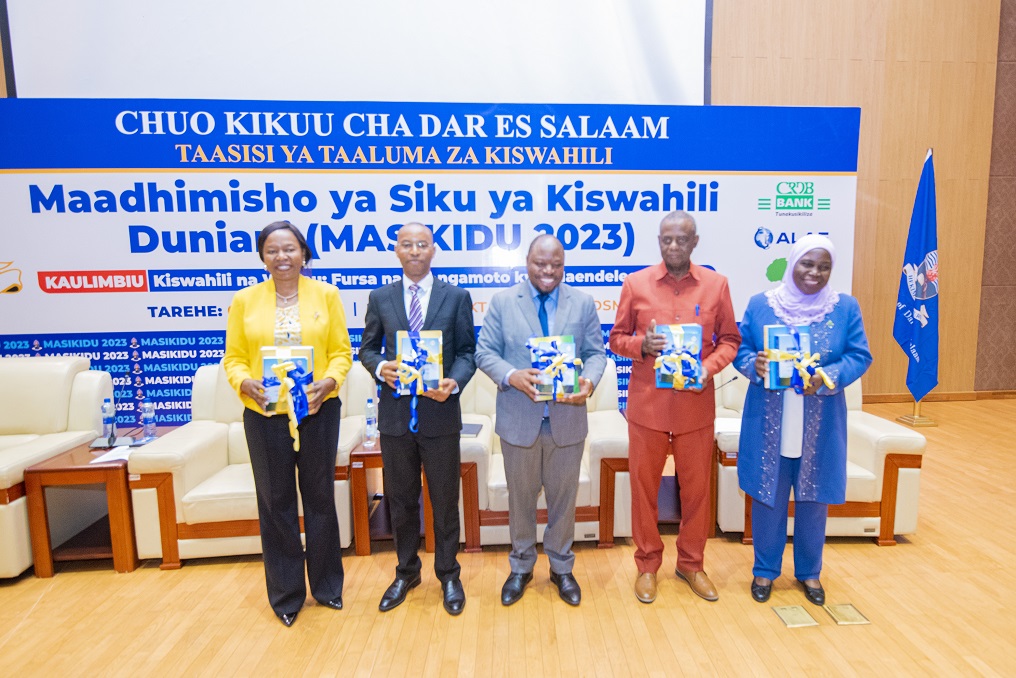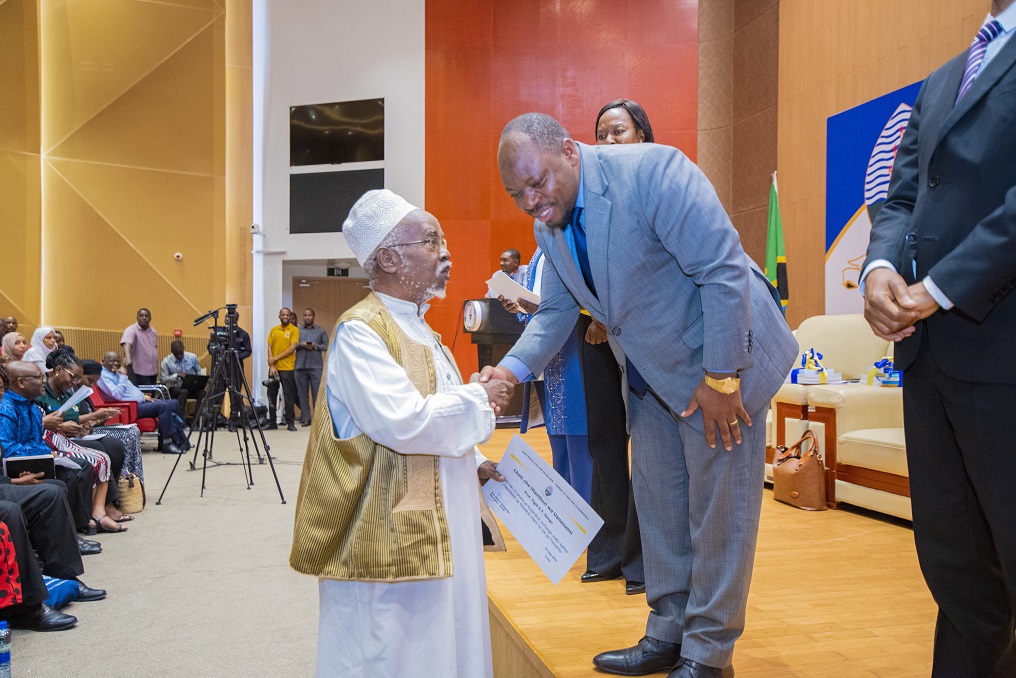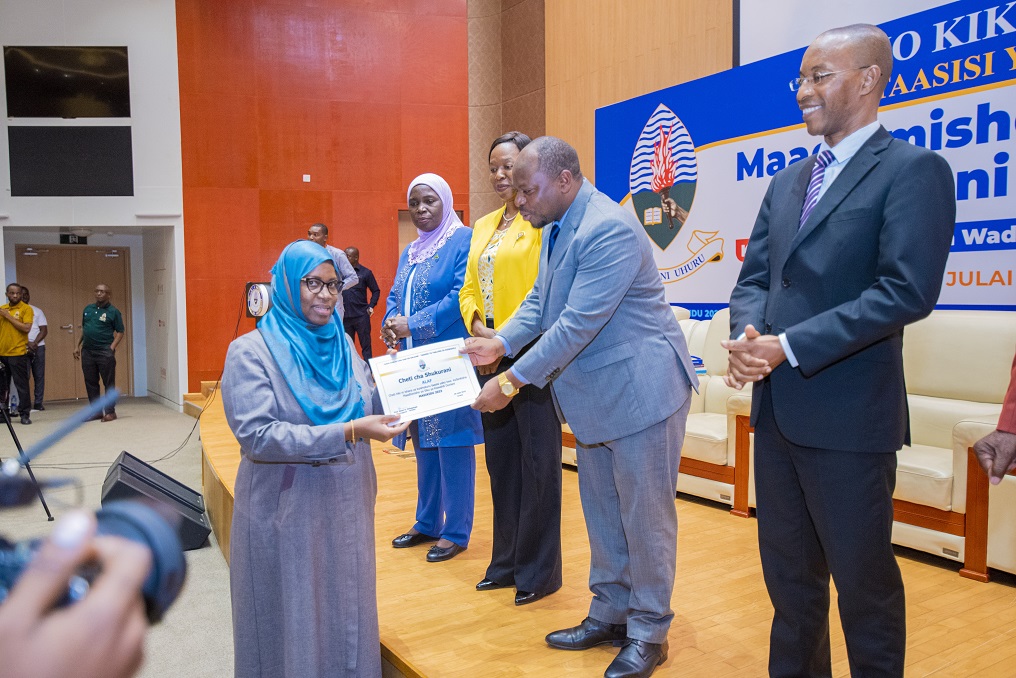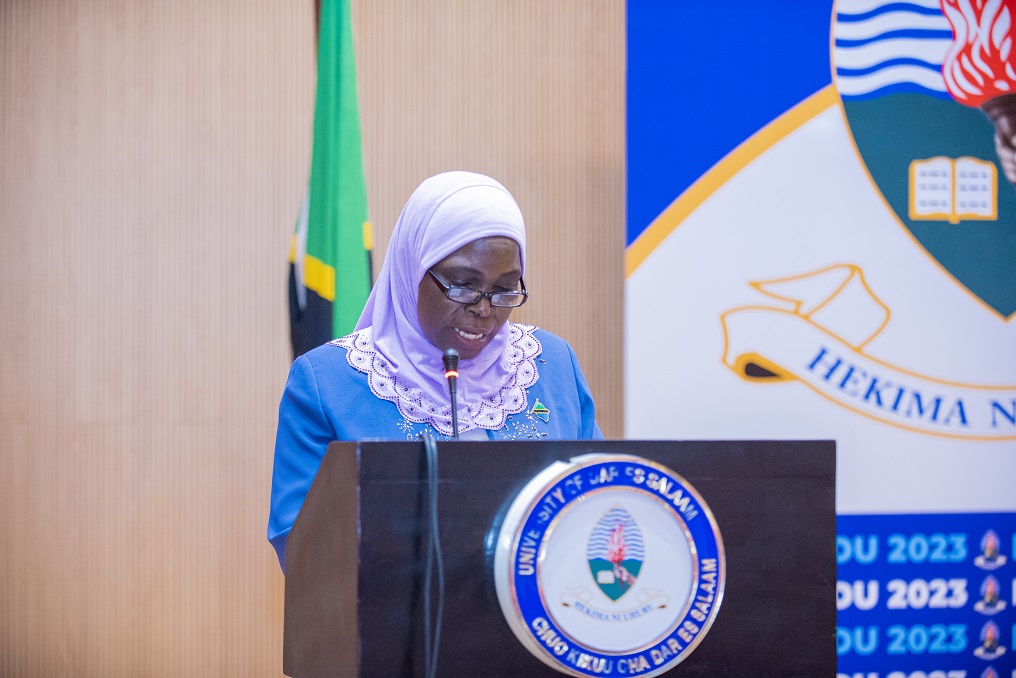News
Dar RC Chalamila and language gurus embellish World Kiswahili Day at UDSM
By Jackson Isdory, CMU
The Dar es Salaam Regional Comissioner, Hon. Albert Chalamila and a number of Kiswahili gurus and veterans as well as the University of Dar es Salaam members of staff and students recently gathered together to celebrate the World Kiswahili Day at Mwalimu Julius Nyerere Mlimani campus.
This event, which was an eye-opener to many Kiswahili varsity students, and reflected the contribution of many Tanzanian scholars in the growth of Kiswahili scholarship over the years, was organised by the UDSM Institute of Kiswahili Studies (IKS) and took place on 4th July, 2023 at the University of Dar es Salaam.
The Kiswahili language gurus that many participants were thrilled to mingle with included Prof. Hermas Mwansoko, Prof. Tigiti Y. Sengo, Prof. John G. Kiango, Prof. Yohana P. Msanjila, Prof. Shaaban Mlacha, Prof. Mugyabuso M. Mulokozi, Prof. Emmanuel Mbogo, Prof. Penina Mlama, and Dr. Suleiman S. Sewangi.
The event was in honour of the rich legacy and global significance of the Kiswahili language. The Dar es Salaam Regional Commissioner, Honorable Albert John Chalamila, graced the occasion as the Chief Guest.
Need for use of Kiswahili across Africa
As he graced the occasion, the Regional Comissioner, Hon. Chalamila, who also happens to be UDSM-IKS PhD student, emphasised the importance of the celebrations as far as the growth of and fast need for the use of Kiswahili language all over Africa was concerned.
He applauded the tireless efforts of the University of Dar es Salaam in promoting the Kiswahili language for years, and encouraged both academic members of staff and students to research and do more scholarly works aimed at elevating Kiswahili language both a medium of instruction and a language for common use.
“The University should also take further strides in embracing the potential of Kiswahili in the digital age. With the expansion of modern technolgy services, let us also move with these developments by having programmes such as online Kiswahili courses for both local and foreign learners”, he said.
He also emphasised the need to establish Kiswahili language short courses tailored to professionals like journalists, diplomats, and creative writers as initiatives to create more opportunities for the growth of the language and enhancement of knowledge on related fields.
Hon. Chalamila praised the language's wide acceptance which is evident by the official status it has received within the East African Community, Southern African Development Community, and the African Union and highlighted Kiswahili's influence, with over 200 million speakers worldwide, predominantly in the East and Central African sub-regions.
Earlier, Prof. Bernadeta Killian, UDSM Deputy Vice Chancellor-Planning, Finance and Administration who represented the Vice Chancellor, Prof. William A. L. Anangisye, emphasised the substantial role the University of Dar es Salaam has played in the promotion of Kiswahili language globally.
Teaching Kiswahili in other countries: offering scholarships
Prof. Killian pointed out thatUDSM has established collaborations in various African countries for teaching Kiswahili language in their different universities, and offers scholarships for postgraduate foreign students to undertake studies at Masters level in Kiswahili at the University of Dar es Salaam.
Meanwhile, Prof. Shani Omari Mchepange, the Director of IKS, highlighted the institute’s notable contribution and services over the years in teaching, researching, and community engagement in Kiswahili language. She noted that plans were under way to further develop Kiswahili language, including the ongoing efforts to design the International Kiswahili Proficiency Test for foreign learners.
In November 2021 at its 41st Session in Paris, the General Conference of UNESCO declared July 7th World Kiswahili Language Day. By Resolution 41 C/61, Member States recognised the critical role played by Kiswahili in promoting cultural diversity, creating awareness, and fostering dialogue among civilisations.
Other News
Wed, 08.Jan.2025 : President Mwinyi proclaims UDSM-IMS role in Blue Economy policySun, 05.Jan.2025 : Ministry of Blue Economy, UDSM in key conversations ahead of historic Foundation Stone laying at IMS
Fri, 20.Dec.2024 : ALAF Limited yatoa ufadhili wa masomo ya Umahiri katika Kiswahili kwa wanafunzi wa UDSM
Thu, 19.Dec.2024 : UDSM Herbarium: an invaluable resource fostering conservation, plant taxonomy and ecology
Sat, 14.Dec.2024 : Tracer study findings stress on curriculum to meet national human resource needs
Sat, 14.Dec.2024 : Prof. Mushi calls for ethical and inclusive innovation as Africa higher education leverages AI
Fri, 13.Dec.2024 : UDSM kuwa kituo cha utafiti wa Sayansi ya Bahari barani Afrika
Fri, 13.Dec.2024 : Multi-billion Sida funds to boost research on sustainable development at UDSM


